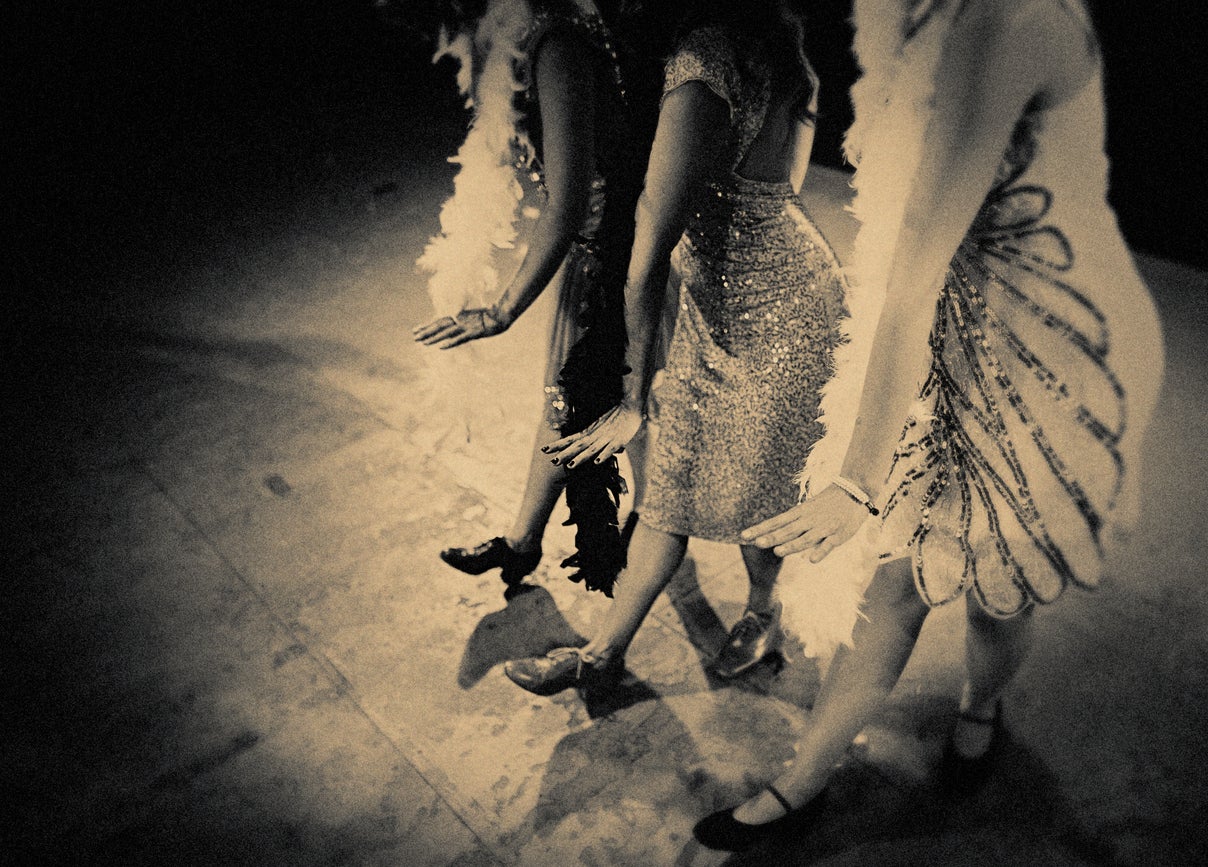Are we about to enjoy a second Roaring Twenties? Not likely – our instincts may be more cautious than carefree
Recovery over the next few years will share some features from the 1920s, but it needs to be carefully managed to ensure the better off are not the only ones enjoying the benefits


Your support helps us to tell the story
From reproductive rights to climate change to Big Tech, The Independent is on the ground when the story is developing. Whether it's investigating the financials of Elon Musk's pro-Trump PAC or producing our latest documentary, 'The A Word', which shines a light on the American women fighting for reproductive rights, we know how important it is to parse out the facts from the messaging.
At such a critical moment in US history, we need reporters on the ground. Your donation allows us to keep sending journalists to speak to both sides of the story.
The Independent is trusted by Americans across the entire political spectrum. And unlike many other quality news outlets, we choose not to lock Americans out of our reporting and analysis with paywalls. We believe quality journalism should be available to everyone, paid for by those who can afford it.
Your support makes all the difference.As the crystal ball season of new year predictions draws to a close, one of the more prescient stories to emerge is the notion that 2021 will see a rerun of the post-pandemic splurge of the 1920s. Following yesterday’s grim announcement of further, long national lockdowns, the prospect of a big recovery is beguiling.
The vision is that the world will emerge (in the summer months) from the dark Covid tunnel – vaccinated, relieved to be alive and ready to embark on a big spending spree with endless partying and fun.
There are good reasons why looking back a century may provide a guide to the future. The first is that the Spanish flu, following the First World War, was our last experience of a deadly global pandemic. Perhaps 20 to 50 million died of it globally out of 500 million infected (as against around two million dead, so far, from Covid out of 86 million reported cases). In the UK the death toll was around 230,000 then (from a much smaller population), as against 75,000 and counting from Covid.
The devastation of Spanish flu was not only on a much bigger scale but didn’t discriminate by age. It killed many young people, as well as the elderly. Moreover, the disease was not understood until it got well under way, so the public health reaction was weaker and slower; nor was there the relief of a vaccine.
As now, economic catastrophe followed. Today we are experiencing the worst economic disaster since 1921 when the after-effects of the last pandemic, combined with demobilisation and attempts to cling to the Gold Standard, caused a deep recession. GDP fell then by 20 per cent and the depression wiped out, cumulatively, around 150 per cent of annual income.
It took 15 years to return to the same level of economic activity, in part because governments did not accept the necessity for the expansionary monetary and fiscal policies we have today. Even with those measures, the UK is likely to have seen a 12 per cent fall in GDP in 2020 and the recovery, when it begins later this year, may not take us back to 2019 levels for a decade or more.
Recovery will undoubtedly share some features of the recovery from the 1920s. The better-off, who have escaped redundancy and loss of earnings, have been piling up savings because of the uncertainty and lack of opportunities to spend. Once let off the leash they will spend: big time. Some will go as far as to buy up second, or bigger, homes; others will confine themselves to new cars and extravagant holidays.
The restaurants, car dealers, travel agents, nightclubs, fashion shops and public entertainment events which have survived the cull of lockdown could find themselves drowning in demand. I suspect that one man with his finger on the nation’s quickening pulse is the owner of Ryanair who has just ordered a fleet of new jets to take us to Caribbean beaches and African game parks.
There will be sudden release from a period of privation and restraint, with the same effect on society as popping a champagne bottle. People will want to enjoy life again: eat, drink and be merry. In the 1920s, there was a period of hedonism and the relaxation of prudish standards around fashion, culture and sex. This time, young people in particular, whose lives have been put on hold to save the elderly, can be expected to let rip (when or if they have the money).
In the 20th century, the rapid spread of radio and telecommunication, cars and aviation, cinema and popular music provided a fertile ground for creativity and invention. In the 2020s, creativity and invention will more likely be in the digital sphere. There are major innovations just around the corner in fields like artificial intelligence, “big data” and quantum computing. These have the potential to transform the consumer experience of everything from shopping to gaming, as well as to make huge advances in medicine and climate science.
The idea of recovery led by private consumption, and the consumption of the better-off, will worry those who have seen the pandemic as a wake-up call for government to invest in infrastructure in left-behind Britain and to remedy the neglect of poverty and inequality. Unfortunately, as in the 1920s, government is preoccupied by inherited public debt (then due to the expense of war; now due to the unprecedented – and very welcome – public spending to keep the economy going during lockdown). I will be pleasantly surprised if the Treasury doesn’t, once again, batten down the hatches, curbing public spending.
What is somewhat different from the 1920s is a greater willingness by the Bank of England to support recovery. But we have already discovered that one of the main side-effects of printing money is to inflate asset prices – shares and property become “worth more” – helping the wealthy to become wealthier. Eventually and inevitably, though, these asset bubbles burst. Even without being super-charged by monetary policy, the Roaring Twenties gave a spectacular example, in October 1929, of what happens when the party comes to an end.
Another difference from the 1920s is that it is a different, rising economic superpower leading the world out of post-Covid recession. The only part of the world currently growing again is China (or Greater China if we include Taiwan). Most western commentators are looking at China through a political, cold war lens, which obscures the significance and shape of Chinese economic recovery. It will be every bit as influential on European culture as the US was in the last century.
If the Roaring 2020s has a characteristic sound it will be the tapping of young people on their smartphones, playing around with Chinese apps. Despite President Trump’s failed attempt to ban it, TikTok is just one of a wave of new digital tools winging their way from the east.
The Chinese consumer is now several years ahead of us, shopping remotely with devices which also incorporate payments and social media experience. The smarter British retailers will already be lining up collaborations with Pinduoduo, Tencents, Shopify and Alibaba. As this week’s Economist put it, “the future is Chinese”, at least when it comes to spending.
There are of course many imponderables. We can see light at the end of the Covid tunnel, but the tunnel may prove to be longer than anticipated if the brilliance of the vaccine scientists is unmatched by the efficiency of the rollout. We also can’t be absolutely certain that the vaccine will be effective against whatever new mutations occur in coming months.
And when we finally emerge, blinking, into the dazzling light of normality, some of our instincts may be ultra-cautious rather than carefree. We may be sufficiently nervous to focus on the next threat, like climate change, having seen some of the consequences of tinkering carelessly with nature.
Certainly governments should not leave the recovery to be led by the private consumer alone. The Twenties party needs to be carefully managed so that it isn’t just the better-off people in better-off countries who can join the fun and there isn’t an almighty hangover at the end.






Join our commenting forum
Join thought-provoking conversations, follow other Independent readers and see their replies
Comments